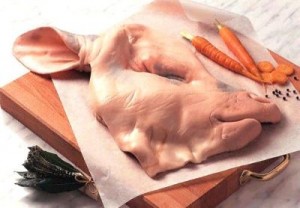Yesterday, on the way to the apartment of this week’s host for our French-English conversation group, I passed a Laura Ashley boutique with a window display that said : “Make Your Christmas Homely.” When I mentioned this to my group, only the anglophone half laughed. “Homely means ugly,” I explained. Laid. Moche. They were shocked and said they use this word as a compliment all the time. Each francophone grabbed her phone, making a frantic note. They are eager to perfect their English because it is the language of business. One of the people in my group is an architect, I can only imagine how often she’s told clients she will transform their apartments into something truly homely.
Be Fruit. Be City. Be Rock. This is what the window display of a children’s store on my block says. This construction: Be [a weird noun, instead of an adjective] is common here. It’s as if saying anything in English makes it automatically cool, even if it doesn’t make any sense.
A French woman in my group was describing a wedding she’d attended. The bride was delicious, she said, and when the angophones pointed out that this adjective has sexual innuendo, all the francophones were mortified. In French, the word means charming, so they assumed it meant the same thing in English. I can imagine the reaction of American mothers, hearing male teachers call their teenager daughters “delicious.”
An international family moved from Switzerland and then Germany before coming to Paris and sending their children to a private American school here. When they got an e-mail from the guidance counselor, saying their son is “a pleasure,” they were sure the man was a sexual predator. Once they met him, they realized they just weren’t used to the perhaps uniquely American practice of telling students how great they are.
The trilingual father of one of my daughter’s friends shared this trick: Whenever he’s unsure of a phrase, he types it into Google. If multiple links appear, the phrase is probably colloquial. If not, he tries something else. That’s what I’ll do next time I write an e-mail, before I accidentally call someone I’m really trying to impress the French equivalent of a homely, delicious fruit.



